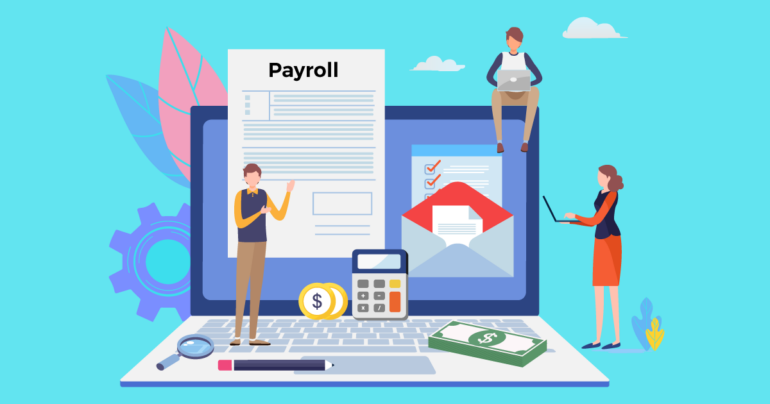Choosing the right payroll software for your business is essential. It will save you time and effort and help you maintain compliance to avoid penalties and lawsuits. It also should integrate to create an HR workflow that works seamlessly with the other tools you use. It should automate tax filing and payments and handle recurring payments for contractors.

Features
When choosing the right payroll software for your business, there are a few features that you want to look for. These include ease of use, security, and scalability.
Whether your company has nine employees or a thousand, it’s important to find software accommodating different work roles and payment structures. It should also be able to handle multiple currencies and tax settings.
Another factor is how easy it is to make changes in the system. Payroll software should be intuitive and have prebuilt processes that allow employees to make simple changes without asking for assistance from HR.
The software should also provide employees with accurate information and reports. This way, employees can make informed decisions about their salary and benefits.
The software should also be able to calculate employee taxes and file them on time. This saves businesses a lot of money and avoids penalties.
Security
When choosing the right payroll software for your business, ensuring it has all the security features you need is crucial. These include substantial password restrictions, encrypted databases, user access controls, and disk encryption.
These features will help your business prevent remote threats or data leaks that could compromise sensitive information. In addition, they can also help protect employees from cyber attacks that could affect their private data.
Another vital security best practice is to back up and secure your payroll data. These backups ensure that you can restore it if your software goes wrong.
Aside from backups, businesses should also audit their payroll records regularly to identify any recording errors that may have cost the company money. This will allow them to fix any issues before they happen, preventing future data breaches and enhancing their reputation as trustworthy businesses.
Employees should also have access to security training that teaches them how to use the payroll system properly and securely. This can include two-factor identification and creating a unique, strong password that they change frequently.

Scalability
If your business plans to grow in the future, you need a payroll software solution that can scale up as your needs increase. Ideally, you’ll be able to expand your system with new users and features at a minimal cost.
Many entry-level accounting solutions set limits for a certain number of vendors, customers, or payroll items, and functionality deteriorates as you approach these limitations. Similarly, when you add additional staff to your payroll process in the form of temps during peak times or let your full-time staff go mid-January, you need to be able to scale up and down without disruption.
Scalability is essential for companies seeking global opportunities. As they expand, smaller firms often face challenges transitioning from domestic systems to multi-country payroll and HR solutions.
Instead, a scalable global payroll solution can help meet a firm’s needs while maintaining consistency across all regions and processes. International teams can leverage standardized data formats and procedures, improving efficiency, compliance, and reporting.
Flexibility
When selecting the right payroll software for your business, flexibility is a crucial factor. You’ll want a system that can handle your specific needs while saving you time and money.
Moreover, you’ll also want a system that can integrate with other systems and be easily configured. This will help you save time and reduce errors as you scale.
The right payroll software will help you calculate employee wages and deductions accurately, and it’ll automatically pay and file payroll taxes. It also offers features like unlimited pay runs, paid time off tracking, two-day direct deposits, and employee self-service portals.
Choosing the right payroll software for your business can help you keep costs low and increase profitability. To find the best solution, list what you need your payroll software to do. Then, compare platforms against your list to see which ones meet your criteria.

Cost
The right payroll software should provide automated features that minimize the time and hassle of payroll processing. It should also offer tax filing and payment options, direct deposit, and live support.
The software should be easy to configure and manage without requiring IT engineers or coding skills. It should also integrate with your other core business systems, such as time and labor, compensation, financial and absence management.
Another feature that you should look for in good payroll software is compliance. This feature helps businesses remain compliant with various government agencies, which can reduce the risk of fines and penalties.
A payroll system should be able to collect data based on attendance, leave, and overtime from employee self-service modules or time attendance devices. It should automatically adjust these records to generate payslips in line with company policies and regulations.
Another feature of payroll software should have the ability to run reports on spending versus budget, tax summaries, worker’s compensation, and paid time off calculations. This functionality makes it easier for managers to verify and understand their business.
